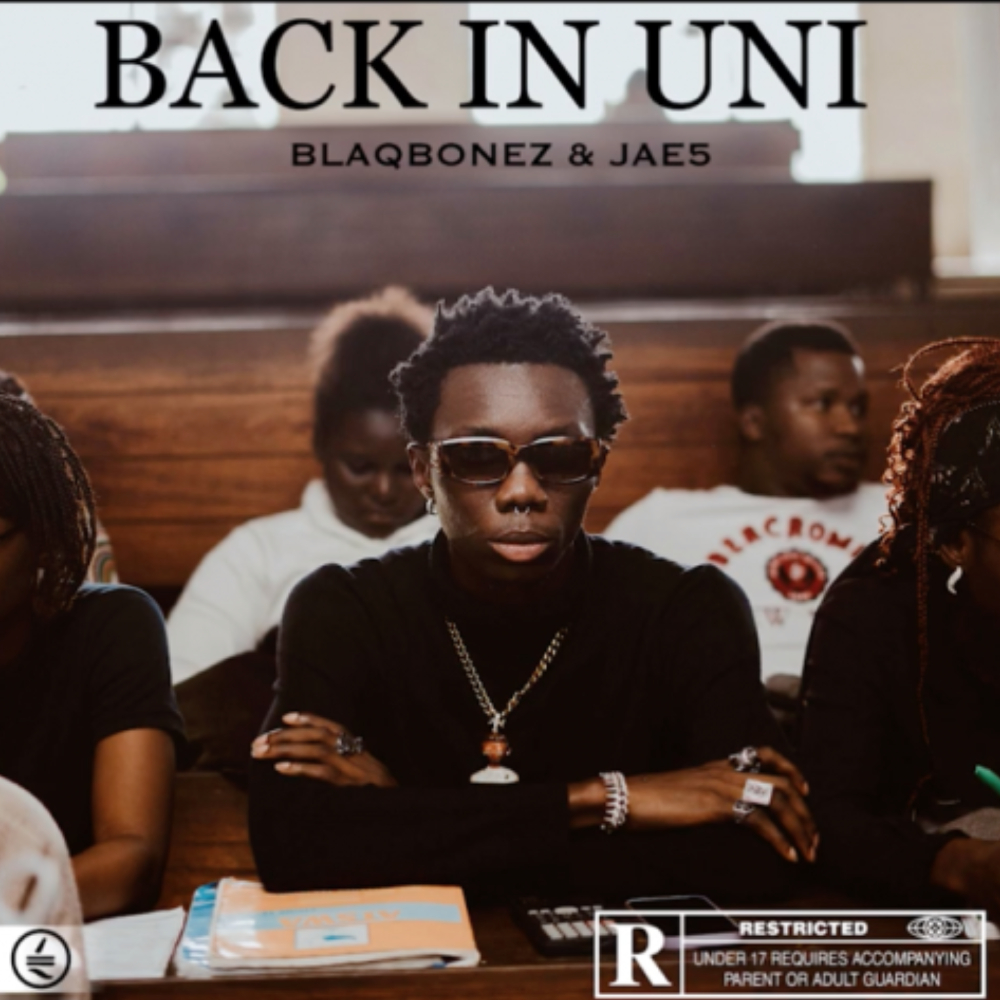
Best New Music: Blaqbonez’s New Single “Back in Uni” Is an Anthem for the Unbelievers
Blaqbonez reminisces with glee about his past

Blaqbonez reminisces with glee about his past
In the promo video for 2018’s L.A.M.B August Hip-Hop projects, while M.I Abaga, Loose Kaynon and A-Q delivered pointed answers to the questions about the Rap culture in Nigeria, Blaqbonez went off target, repeating the words, “I’m just a humble guy.” At that time, everyone wondered what kind of stunt Blaqbonez was pulling. When his project ‘Bad Boy Blaq’ eventually came out, one thing was clear: Blaqbonez is a terrific artist. ‘Bad Boy Blaq’ featured Oxlade, Loose Kanyon, A-Q and Terry Apala; the track “Mamiwota” showcased Blaqbonez’s ear for melodies and also served as a breakthrough for singer Oxlade. Those moments exemplified the duality of Blaqbonez: astute vocal delivery in the studio and eccentric humour outside of it.
View this post on Instagram
Last year, Blaqbonez doubled down on his playful side to promote his debut album ‘Sex Over Love.’ He went out into the streets with a megaphone, calling on people to listen to his project. Across social media platforms and interviews, he pushed his gospel of sexual encounters devoid of romantic attachments. The music on ‘Sex Over Love’ matched the energy Blaqbonez exhibited off wax; it was a collection of Hip-Hop and Afro-pop songs, on which the Nigerian artist effortlessly blended his rapping and singing skills. On “Back in Uni,” the lead single off his sophomore album ‘Young Preacher,’ Blaqbonez’s strengths are on display again.
In the months leading to the release of “Back in Uni,” British-Ghanaian record producer JAE5 revealed that he charged £25,000 for a beat. His tweets got people talking, with Blaqbonez pleading with his fans to stream his song when it comes out. He also engaged in a mild trolling of Asake to vacate the No. 1 spot on the music chart. At the moment, “Back in Uni” sits at number eleven on Apple Music’s Top 100 songs in Nigeria.
On “Back in Uni,” Blaqbonez, who is an alumnus of Obafemi Awolowo University (OAU), excavates his past romantic dealings during his time in the tertiary institution. “My girlfriend way back in Uni/Some things she’ll never know/Oh lord I did her dirty/Some things she’ll never know,” he sings in the chorus. For Blaqbonez, there is no sincerity in romantic relationships; everyone is cheating on their partners with others. He accepts his culpability when he sings, “To all the keles wey I don ghost/Didn’t mean to play with your heart/But that’s just how the game goes.”
JAE5’s production is minimalist with an Afropop-influenced Hip-Hop rhythm. Blaqbonez expertly flows on the track, changing his cadences as he finds pockets of melody. Theme-wise, “Back in Uni” taps into the debauchery that began from ‘Sex Over Love’ and runs into CKay’s ‘Sad Romance’ and Fireboy DML’s “Ashawo.” In a largely conservative society like Nigeria, there is a lot of hush-hush on matters of sex and having multiple sexual partners. Artists like Blaqbonez are bold enough to stand their ground and stick to their reality, even if it goes against the views of the majority.
Across social media platforms, there are always conversations about the dishonesty prevalent in many relationships. Those conversations have birthed the term “breakfast,” which in Nigerian speak stands for heartbreak. “This street no send your mental health/Shey you no dey see am for internet?” Blaqbonez sings on “Back in Uni.” For him, one of the efficient ways to avoid heartbreak is to break hearts instead. Although that doesn’t make for a healthy view of relationships, it is hard to fault Blaqbonez’s logic.
After sharing a hilarious exchange with Nigerian video director TG Omori, Blaqbonez revealed that he would be directing the music video for “Back in Uni.” According to him, the video drops tomorrow, and in his usual fashion, he is breaking the internet. ‘Young Preacher’ also drops in about two weeks. Judging by “Back in Uni,” the album will continue his gospel of ditching the love tropes and sticking to his ideology of closing one’s heart to love while opening up to sexual pleasures.
Listen to “Back in Uni” below.
Featured image credits/Blaqbonez

